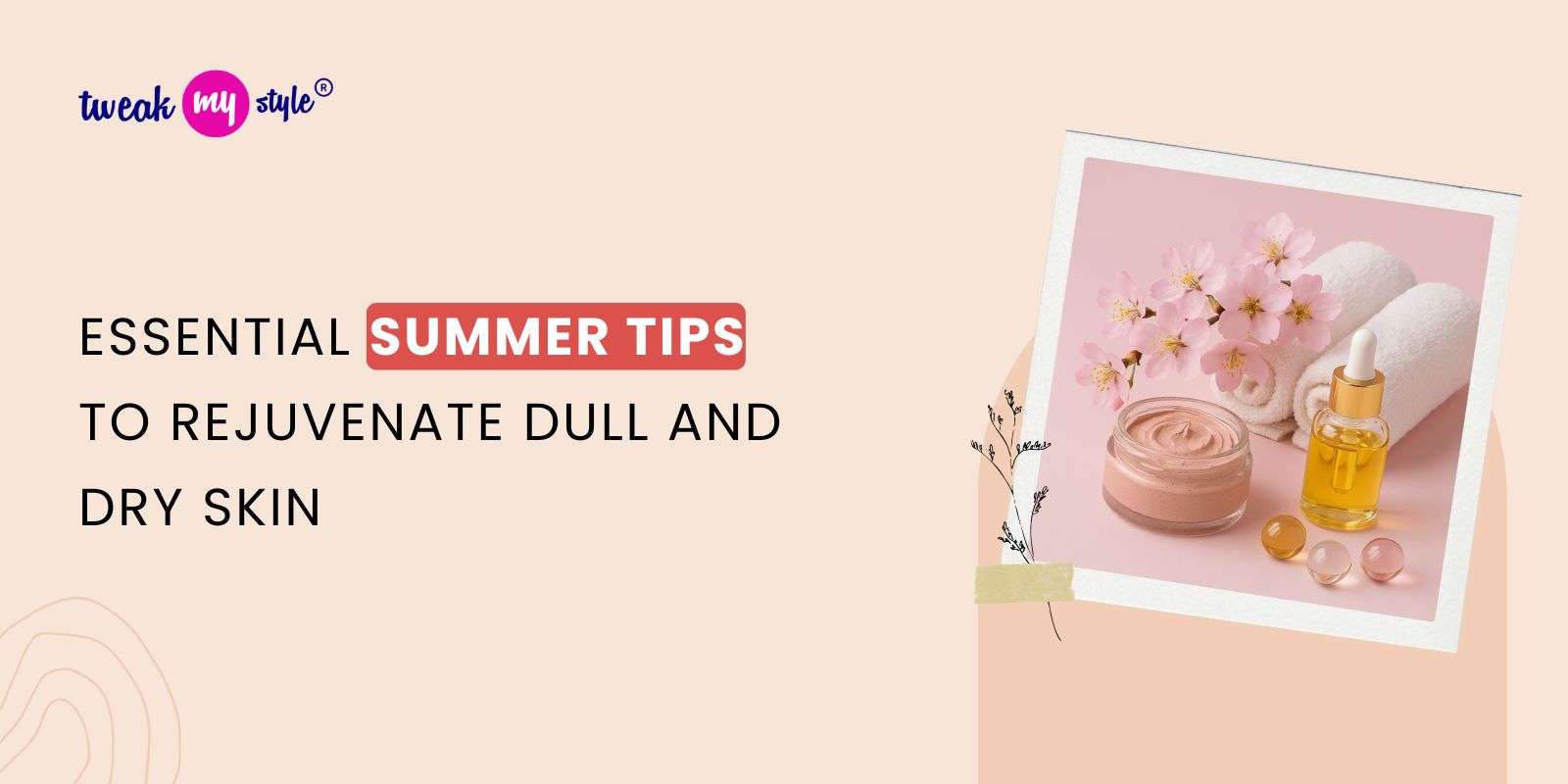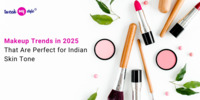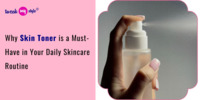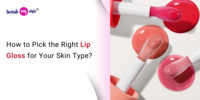- Jun 26, 2025
- Skincare Tips
- 573
Share this post on:

Summer. The season of sunshine, vacations, and… potentially, skin that feels like the Sahara Desert? While the sun's rays might seem glamorous, they, along with heat, humidity fluctuations, and increased outdoor activity, can wreak havoc on your skin, leaving it dull, dry, and depleted. But don’t despair! This blog post is your comprehensive guide to understanding why summer impacts your skin and, more importantly, what you can do about it. We're diving deep into preventative measures, treatment options, and lifestyle changes to help you reclaim that healthy, radiant glow.
Why Does Summer Skin Get So Dry & Dull? The Science Behind the Struggle
Before we jump into solutions, let’s understand the root of the problem. Several factors contribute to summer skin dryness and dullness:
- Sun Exposure: UV rays aren't just about sunburn. They damage skin cells, disrupt the skin’s natural barrier function, and accelerate moisture loss. This damage leads to a breakdown of collagen and elastin, contributing to premature aging and a lack of elasticity.
- Heat & Sweat: While sweating is a vital cooling mechanism, excessive sweating can strip the skin of its natural oils, leaving it feeling tight and dry.
- Humidity Fluctuations: While some areas experience high humidity, others have significant fluctuations between day and night. This inconsistent moisture can disrupt the skin's ability to maintain hydration.
- Chlorine & Saltwater: Swimming is a summer staple, but chlorine in pools and salt in the ocean are incredibly drying. They dissolve natural oils, leaving skin feeling rough and irritated.
- Dehydration: We’re often reminded to drink more water in the summer, and for good reason. Dehydration impacts everything, including skin hydration.
- Increased Exfoliation: Increased sun exposure can lead to increased skin cell turnover, potentially leading to a buildup of dead skin cells that contribute to dullness.
- Air Conditioning: While a blessing in the heat, air conditioning can draw moisture from the air, further drying out your skin.
Prevention is Key: Shielding Your Skin Before the Damage Happens
The best way to combat summer skincare woes is to prevent them in the first place. Here's your preventative playbook:
- Sunscreen, Sunscreen, Sunscreen: This is non-negotiable. Use a broad-spectrum sunscreen with an SPF of 30 or higher every day, even on cloudy days. Reapply every two hours, or more frequently if swimming or sweating. Look for formulas containing zinc oxide or titanium dioxide for physical sun protection.
- Hydrate from the Inside Out: Aim for 8 glasses of water per day. Carry a reusable water bottle and sip throughout the day. You can also incorporate hydrating fruits and vegetables into your diet (see the “Nutrition for Radiant Skin” section below).
- Gentle Cleansing: Avoid harsh soaps and cleansers that strip your skin of its natural oils. Opt for creamy, hydrating cleansers specifically designed for dry or sensitive skin.
- Limit Hot Showers: Hot water can exacerbate dryness. Lower the water temperature and keep showers brief.
- Protect Your Skin from Air Conditioning: If you spend a lot of time in air-conditioned environments, consider using a humidifier to add moisture back into the air.
- Wear Protective Clothing: Cover up with lightweight, breathable clothing like cotton or linen to shield your skin from the sun. Don't forget a wide-brimmed hat and sunglasses!
Treatment Options: Repairing and Revitalizing Dull, Dry Skin
Okay, so maybe some damage has already been done. Don’t panic! Here’s how to repair and revitalize your skin:
- Exfoliation (But Be Gentle!): Removing dead skin cells is crucial for revealing brighter, healthier skin. However, over-exfoliating can worsen dryness. Limit exfoliation to once or twice a week. Choose a gentle exfoliator – chemical exfoliants like AHAs (alpha hydroxy acids, such as glycolic or lactic acid) and BHAs (beta hydroxy acids, like salicylic acid) can be very effective but start with a low concentration. Enzyme exfoliants are also a good option for sensitive skin.
- Moisturize, Moisturize, Moisturize: This is your new mantra! Apply moisturizer immediately after showering or cleansing, while your skin is still damp, to lock in moisture. Look for moisturizers containing humectants (like hyaluronic acid and glycerin – these draw moisture into the skin), emollients (like shea butter, cocoa butter, and ceramides – these soften and smooth the skin), and occlusives (like petrolatum and mineral oil – these create a barrier to prevent moisture loss).
- Face Masks: A Boost of Hydration: Incorporate hydrating face masks into your routine 1-2 times a week. Look for masks containing ingredients like honey, avocado, aloe vera, and hyaluronic acid.
- Serums: Targeted Treatment: Serums are lightweight, concentrated formulas that can address specific skin concerns. Hyaluronic acid serums are excellent for hydration. Consider serums with antioxidants like Vitamin C to combat free radical damage from sun exposure.
- Consider a Humidifier: If dryness is a persistent problem, especially indoors, invest in a humidifier to add moisture to the air.
Nutrition for Radiant Skin: What You Eat Matters
What you put into your body is just as important as what you put on it. Here’s how to nourish your skin from within:
- Hydrating Foods: Watermelon, cucumbers, strawberries, and other fruits and vegetables with high water content help keep you hydrated.
- Healthy Fats: Omega-3 fatty acids, found in fatty fish (salmon, tuna, mackerel), flaxseed, and walnuts, help support the skin’s barrier function and reduce inflammation.
- Antioxidant-Rich Foods: Berries, dark chocolate (in moderation!), and leafy green vegetables are packed with antioxidants that protect skin from damage.
- Vitamin C: Essential for collagen production, Vitamin C can be found in citrus fruits, bell peppers, and broccoli.
- Vitamin A: Supports skin cell turnover and helps reduce the appearance of fine lines and wrinkles. Good sources include sweet potatoes, carrots, and spinach.
Product Recommendations
- Cleanser: CeraVe Hydrating Facial Cleanser (gentle, fragrance-free)
- Exfoliant: The Ordinary Lactic Acid 5% + HA (chemical exfoliant – start slowly)
- Serum: Neutrogena Hydro Boost Hydrating Serum (hyaluronic acid)
- Moisturizer: Vanicream Moisturizing Cream (highly effective, fragrance-free, suitable for sensitive skin)
- Sunscreen: EltaMD UV Clear Broad-Spectrum SPF 46 (popular, lightweight, good for acne-prone skin)
- Face Mask: Origins Drink Up Intensive Overnight Hydrating Mask
Important Note:These are just examples. Individual skin types and sensitivities vary. Always patch-test new products before applying them to your entire face. Consult with a dermatologist for personalized recommendations.
Final Thoughts: Consistency is Key
Reviving dull, dry summer skin takes time and consistency. By incorporating these preventative measures, treatment options, and lifestyle changes into your routine, you can reclaim that healthy, radiant glow and enjoy the summer season with confidence. Remember, listen to your skin and adjust your routine as needed.










